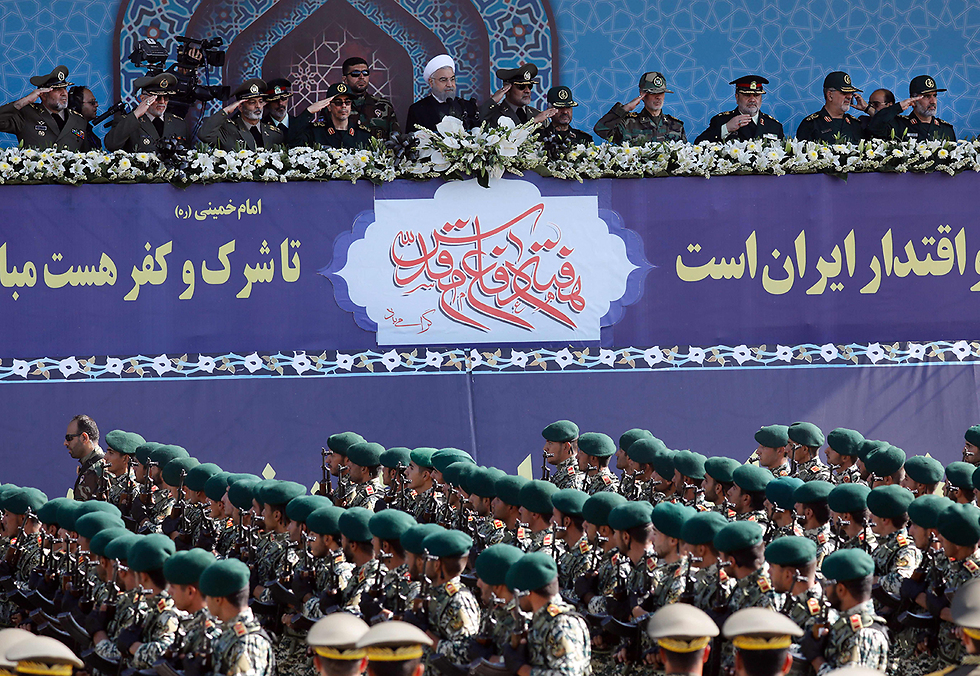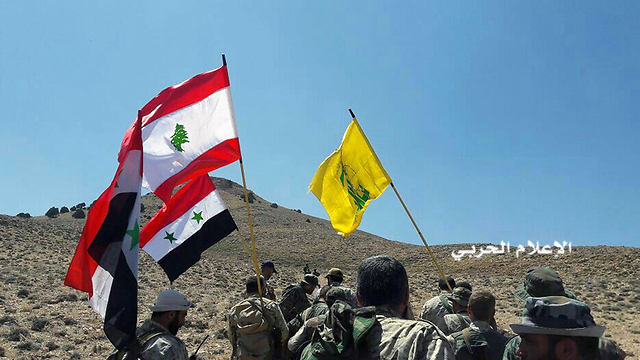Analysis: We must get used to the idea that Israel is likely engaged in a military conflict—so far, controlled—against an Iranian military force that is entrenching itself in Syria; at the same time, the Iranians are building a missile array in Gaza, requiring the IDF to divide its efforts between the north and the south.
The covert battle waged by Israel against Iran on Syrian soil, according to foreign reports, is coming out of the fog. It no longer matters whether Israel claims responsibility for strikes in Syria—like the one reported by the Syrian army on Tuesday—or doesn’t.
We have to get used to the idea that Israel is likely engaged in a military conflict—so far, controlled—against an Iranian military force that is entrenching itself in Syria. The cabinet, which recently discussed the Israeli policy on the northern front—against Syria, Lebanon and Iran—likely reached the exact same conclusion.
In the past year, the defense establishment heads have often discussed the possibility that Iran would build air, naval and land bases in Syria and operate a division of Shiite militias against Israel. These are threats Israel can’t ignore, but they don’t constitute a real military challenge.

The main problem with the Syrian front is the establishment of a crowded system of precision-guided rockets and surface-to-surface missiles which will begin in Lebanon, stretch all the way to the southern Golan Heights and cover the entire Israeli territory with precision-guided warheads. This scenario will present a security challenge which Israel has never experience before.
At the same time, the Iranians are building a missile front in Gaza, which would require the IDF to divide its efforts in fighting high-trajectory weapons between the north and the south.
So far, Israel has failed in neutralizing the missile and rocket array that has been deployed in Lebanon for years. The battle it is waging, according to foreign reports, is aimed at preventing the Lebanese arsenal from turning into an arsenal of precision-guided missiles.
In Syria, on the other hand, the Iranians are likely just beginning the process of building a similar—and more crowded—missile arsenal, based on an existing local industry and on the land bridge from Iran to Syria through Iraq.
To complete this arsenal, they need time and money. If the Russians and Americans are incapable—or unwilling—of doing it through diplomacy, Israel apparently has no choice but to do it on its own. We can no longer hide behind vague statements and hints. This is a war for all intents and purposes. The enemy must know this, and—more importantly—the Israeli public must internalize and prepare.

The recent Air Force strike, according to the Syrians, was carried out in a military complex near Al-Qutaifa, where the Syrian Scud brigades were stationed in the past, and which likely houses rockets, missiles, production factories and storehouses intended for Syria and Lebanon.
In both cases, we’re talking about one array which has been defined by Defense Minister Avigdor Lieberman as “the northern front.” There’s no longer Syria and Lebanon. There’s an Iranian wall of fire from the Mediterranean Sea to the southern Golan Heights. And Israel will keep fighting these arrays in varying intensity, depending on the Syrian-Iranian response and on Hezbollah’s conduct. If someone doesn’t fold there, a war could break out.
So far, there have been no signs of surrender on the Iranian side. On the contrary: In spite of the protests in Iran, the past two years have been very successful for the ayatollahs in spreading the Islamic revolution. Until 2015, the Revolutionary Guards’ main achievement was reflected in Lebanon; in the past two years, Iran has managed to get hold of Iraq, Afghanistan, Syria and Yemen and deepen its influence in Oman and Bahrain.
The Iranian government—especially the Revolutionary Guards—is in a state of euphoria over the sense of victory in Syria. Mohammad Ali Jafari, commander of the Revolutionary Guards, and Qasem Soleimani, commander of the Quds Force, have become new idols among the Shiites in the Middle East.
The Iranians plan to translate the victory in Syria into economic, and mainly strategic, achievements. Hossein Salami, deputy commander of the Revolutionary Guards, stated that—according to the Iranian strategy—Israel is no longer perceived as a threat, as Hezbollah has an advantage over it. Whether true or not, the Iranians believe it and are acting accordingly, presenting a top political and security challenge to the Israeli government.
As reported by Ynetnews
